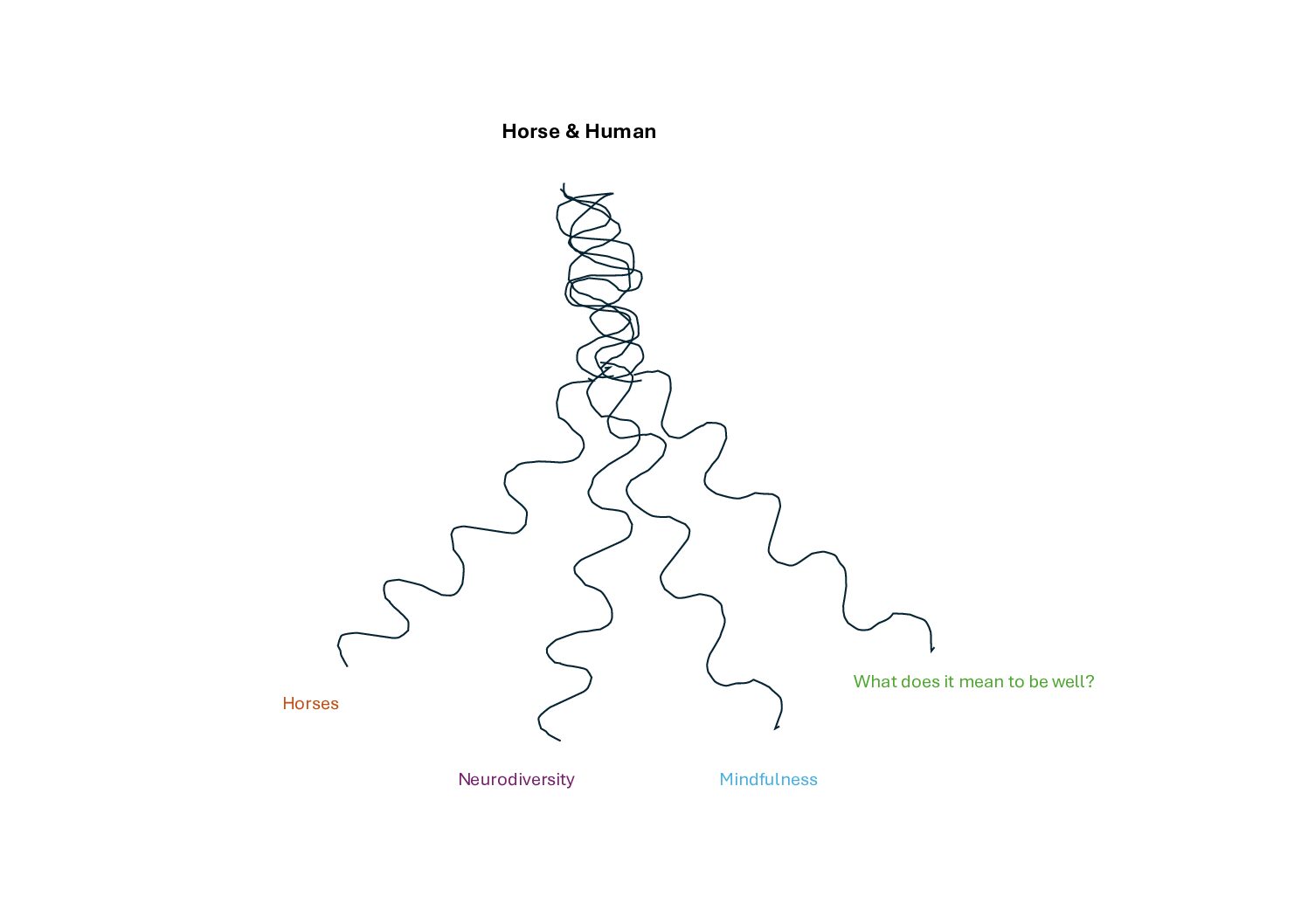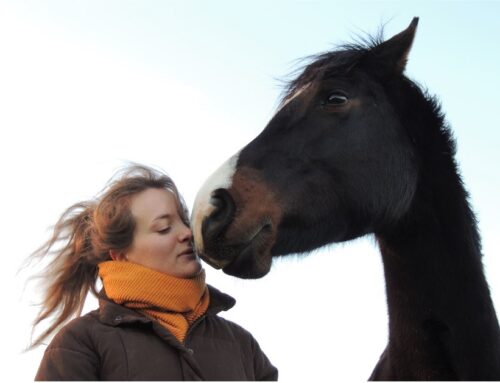I’ve been living alongside horses for as long as I can remember. Coming from a non-horsey family I gravitated to them from a young age and have not left their side since.
I also grew up bewildered by our human world, seeing things differently to the MO and apparently thinking in quite a different way.
Although this was only brought to my attention by the awkward stretches of silence that would hang in the air between me and my peers whenever I shared too real a thought…
I quickly learned to keep my way of seeing quiet to avoid the ridicule engendered by being seen as “different”.
By the time I hit my teens I was thoroughly confused by myself and the world around me.
Inevitably, like any child whose external world does not validate their inner one, I was plagued by a feeling that there was something fundamentally ‘wrong’ with me.
(A much safer option than questioning the sanity of my outer world over which I had no control 😉).
When it came to deciding what to do after school my primary compass was, of course, horses.
Within the school gates (no horses allowed) biology and literature were my favourite subjects.
To me they were the same thing: the study of life.
The only difference was that one studied the external world and the other the internal world.
(An example of the sort of view that, if shared, prompted the excruciating tumbleweed moments of my teen – “don’t stare at me, validate me!”)
I was two years deep into a fairly unrelenting depression by this point and had oberved, thanks to horses, something critical that informed the decision I was about to make:
When my mind was not grounded in the physical world it could take me to dark and distant places.
Something in me knew that for my own sanity I had to choose a practical path (I hadn’t heard of the word ‘embodied’ back then) lest I end up marooned on a remote spit of land created by my mind.
And so wisely (in my case), I chose to study and ground myself in the external world as much as possible.
This meant choosing biology over literature – science over art.
Little did I know this choice would bring me full circle, back to my inner world and a universal lesson in the relationship between the two.
And so, by my young self’s calculations:
Horses + Biology (+ a shit ton of determination + high grades) = Vet School.
So (eventually) off to vet school I went.
Side note: The baggage that accompanied me to university was not just that of my personal belongings…
I also, unconscously, carried with me a strong case of what I’ve come to call “achiever’s disease”.
A term to describe a complex resulting from being measured and commended on a narrow range of attributes by an external authority figure, whilst simultaneously harbouring a lurking sense of being fundamentally flawed.
The result? My worth = My achievements.
More on this another time but for anyone else suffering with this, fear not, you are not alone, there is nothing wrong with you and there is a way to heal.
~
During my time at vet school, I started to question more and more: what does it mean to be well?
A question seeded by the heavy emotional landscape of my early teens.
Surely this was the core question at any institute training health professionals.
However, the medical education I was receiving seemed to be at odds with this line of inquiry.
I once again felt like a peculiar fish swimming against a current of accepted thoughtform.
Trying to understand the thinking behind our current system of health care was, for me, like trying to learn a language everyone else seemed to get and failing miserably.
“Why would we do that?” I’d ask my peers, trying desperately to link the action we’d been told to perform as clinicians to the body we were trying to heal.
“Just take it at face value” my friends would sigh, exhausted just being in the presence of my mind – never mind having to live with it!
You see, I could only see in images and diagrams that linked processes together – “how does it fit into the whole” is effectively what I would be asking, because if I couldn’t see that then I didn’t understand. And if I didn’t understand I felt disempowered.
How could I help others to be well if I didn’t understand why I was doing what I was doing?
In this case, how each action was linked to the bigger picture of health.
~
It was halfway through vet school when I first caught wind of a link between horses and autism.
I can’t remember exactly where or when, all I remember is that I was magnetised.
With no idea why, I’d find myself captivated researching everything I could find and scuttling off to workshops with the little spare time I had between studies.
What was this mysterious link?
It wasn’t until years later after leaving the veterinary profession and working at a centre with horses and autistic children that I began to really understand neurodiversity on a deeper level and, as a result, myself and way of thinking…
~
The rest is history so they say.
A hard won history I might add – you don’t shed an identity associated with the safety of social acceptance without some serious reckoning.
Emerging from the ashes of that reckoning rose Horse & Human – the meeting point of threads running through my life all along:
Horses 🐴
Neurodiversity 💫
Mindfulness 🧠
&
“What does it mean to be well?” 💖
Rather than interests my personality had actively pursued, these threads were currents that had carried me all along, waiting for me to awaken into them.
Perhaps this is how it works – the journey of recognising who we are and our true purpose in life.
By surrendering what we ‘think’ we should do (or have been told we should do) to the oblique nature of our heart’s calling we are delivered to what was here all along.
Waiting for us to come home.
~
Horse & Human is about that journey from thinking to feeling, from head to heart. From lost to found.
This process (and it really is a continous process) births a new type of thinking altogether.
One that Albert Einstein knew we needed if our species were to evolve and use the advances in technology for ‘good’ rather than evil’.
Horse & Human is about this new type of thinking.
A type of thinking that sees unity; that knows deeply the true connected nature of life and cannot be fooled.
A type of thinking that leaves worth hierarchy in the history books and naturally has us use our power to love, empower, create, heal and uplift as opposed to dominate and oppress.
A type of thinking that heralds a new paradigm for understanding health.
One arising from the integration of body and mind into the true state: ‘bodymind’.
A term coined by Dr Candace Pert to convey how, at the basic molecular level, body and mind are not separate and never were.
This is the doorway to liberation.
And it is available to everyone.





Leave A Comment